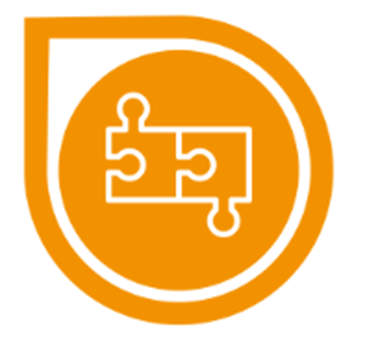PSHE

Intent
At New Bewerley Community School we develop our children to become well-rounded, open-minded and caring citizens that contribute positively to society.
PSHE at New Bewerley Community School will consist of a robust, progressive and spiral delivery of key skills in areas ranging from self-confidence and self-awareness in Reception to keeping safe and managing risk in Year 6. We will use the Jigsaw scheme of work for 3-11 year olds. The curriculum will enable all children to learn to navigate their world and to develop positive relationships with themselves and others. As well as these, children will focus on their emotional literacy skills, building resilience and nurturing their mental and physical health.
Children will also practice mindfulness allowing them to advance their emotional awareness, concentration and focus. Through this progressive, spiral and age appropriate approach we will ensure children are prepared for each stage of their education, including secondary school, and they will learn and practise skills that they can use throughout their whole lives in future friendships and relationships, careers and hobbies.
Throughout our curriculum, school environment and school ethos we aim to:
- Reduce stigma attached to health issues, in particular those to do with mental wellbeing.
- Promote pupils’ self-esteem and emotional wellbeing, helping them to form positive relationships based on a respect for themselves and others.
- Promote the spiritual, moral, cultural, mental and physical development and wellbeing of pupils in school and in society.
- Prepare pupils for the opportunities, responsibilities and experiences of life; including work.
- Develop key concepts, skills, strategies and understanding that enable pupils to make positive lifestyle choices and take responsibilities for their own actions now and in their future.
- Identify and support vulnerable and SEND pupils and promote safeguarding.
- To promote pupils’ self-control and ability to self-regulate, and strategies for doing so.
- To teach children the fundamental building blocks and characteristics of positive relationships.
![]()
Implementation
EYFS:
In the Early Years Foundation Stage (EYFS), Personal, Social and Emotional Development (PSED) is one of the three prime areas, encompassing a child's social, emotional, and behavioral development. PSED focuses on building relationships, managing feelings and behavior, and developing self-awareness and confidence. The EYFS framework emphasizes learning through play and exploration, and PSED is integral to this approach. Reception are taught discreet PSHE lessons using Jigsaw and then given many opportunities to develop their PSED skills through the provision and focused activities led by an adult. Examples of PSED activities in EYFS:
- Play-based learning: Opportunities for children to interact with each other, negotiate roles, and practice social skills.
- Storytelling and discussions: Exploring different emotions, behaviors, and perspectives.
- Group activities: Encouraging cooperation, teamwork, and understanding of rules.
- Real-life situations: Addressing issues like managing conflicts, showing kindness, and following routines.
Year R – 6:
At New Bewerley School, we teach Personal, Social, Health Education as a whole-school approach to underpin children’s development as people and because we believe that this also supports their learning capacity. We teach PSHE using the Jigsaw scheme. Jigsaw, is a progressive scheme of learning. In planning the lessons, Jigsaw PSHE ensures that learning from previous years is revisited and extended, adding new concepts, knowledge and skills, year on year as appropriate. Planning includes key vocabulary used in each year group; explicit links to the DfE statutory Relationships and Health Education outcomes have been made in each Puzzle.
The Jigsaw Programme offers us a comprehensive, carefully thought-through Scheme of Work which brings consistency and progression to our children’s learning in this vital curriculum area.
This also supports the “Personal Development” and “Behaviour and Attitude” aspects evaluated under the Ofsted Inspection Framework, as well as significantly contributing to the school’s Safeguarding and Equality Duties, the Government’s British Values agenda and the SMSC (Spiritual, Moral, Social, Cultural) development opportunities provided for our children.
Example of a Knowledge Organiser - Y1
Example of a Knowledge Organiser - Y3
Impact
Each Jigsaw lesson contains a formative assessment activity for the children to complete called My Jigsaw Learning as part of the ‘Help me reflect’ section of the lesson. For younger age groups these recording sheets are called ‘My Jigsaw Learning’ and for older students, ‘My Jigsaw Journey’. My Jigsaw Journey tasks for the older children follow the same approach with students ticking or colouring the appropriate box for each learning intention in a Piece (lesson). There is also a box for them to record if they were absent for a particular lesson. These are not used for every lesson, only where the class teacher feels appropriate to capture evidence or assess.
The last Piece (lesson) in each Puzzle is also identified as an assessment opportunity for the whole Puzzle. At the end of each Puzzle, their own observations throughout the unit (Puzzle), the children’s formative assessments and Piece (lesson) 6 to make a Summative Assessment of the children’s progress. In Piece (lesson) 6 there are also exemplifications to aid teacher judgement for the working towards/ working at/working beyond attainment descriptors. Teachers will report their assessment on the PSHE New Bewerley assessment proforma on which they will state whether a child is working towards the expected level or at the expected level. Teachers will use the Jigsaw level descriptors to aid their assessment.
Relationship Education & Health Education
From the Summer Term 2021, it is statutory requirement that all primary schools in England and Wales teach Relationships Education and Health Education as a fundamental part of the curriculum. The statutory guidance can be found below.
DfE - RSE Primary Schools Guide for Parents
What does the guidance mean?
The new guidance focuses on healthy relationships and keeping children safe in the modern world. It covers wide range of topics relating to the physical and mental health, wellbeing, safeguarding, and forming and maintaining healthy relationships.
Letter to invite parents to RSE consultation

